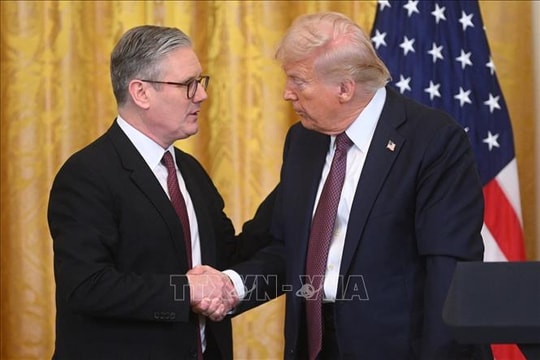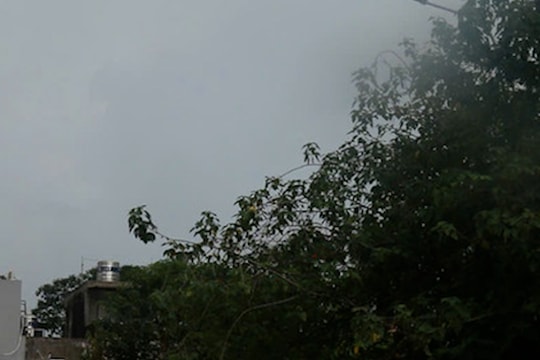How will the US use financial leverage with the Taliban government in Afghanistan?
The Biden administration is under pressure to prevent the Taliban from accessing the global financial system. However, this issue is currently causing much controversy within the US as well as between countries around the world.
The US is divided internally over how to use financial leverage against the Taliban government in Afghanistan, as many experts warn the South Asian country faces economic and humanitarian disaster.
Some US policymakers say that blocking the Taliban from accessing international reserves and aid risks further harming the Afghan people, while many conservative lawmakers say that financial pressure on the group should not be abandoned.
 |
The blow to the Taliban also hits the Afghan people
The debate in the US has a major impact on Afghanistan, because the US effectively acts as a gatekeeper to the global financial system. The US is the most aggressive enforcer of sanctions against the Taliban and the most powerful member of the World Bank and the International Monetary Fund. Both organizations have stopped supporting Afghanistan after the Taliban returned to power.
In a tweet last August, then-Governor of the Central Bank of Afghanistan, Ajmal Ahmady, said that of the Central Bank of Afghanistan's $9 billion in reserves, about $7 billion was held at the US Federal Reserve.
“We are seeing a cash crunch hitting Afghanistan at a time when it can least afford it,” said Elizabeth Threlkeld, deputy director of the South Asia Program at the Stimson Center, a Washington think tank. “This is a challenge for a future Taliban government and for policymakers in Washington and elsewhere.”
Cutting off the Taliban’s access to development assistance resources and foreign exchange reserves is a “double-edged sword,” as any leverage Washington gains over the Taliban will “hit the pockets of Afghans at a difficult time,” Ms. Threlkeld said.
According to the World Bank, international aid accounted for more than 40% of Afghanistan's gross domestic product in 2020. The Taliban's return to power coincided with inflation, the shutdown of basic services, a large-scale exodus from Afghanistan... as well as the dissolution of the Afghan National Defense and Security Forces - one of the largest employers in the country.
The US Treasury Department has signaled that aid groups can operate in Afghanistan with exemptions from sanctions targeting the Taliban, but some Democrats say a clearer solution is needed.
“The Taliban has been listed as a Specially Designated Global Terrorist (SDGT) since 2002. Now, with the Taliban consolidating power, the legal restrictions that come with this designation are having a significant impact on the humanitarian sector, which could significantly hinder critical aid operations in Afghanistan during this time of crisis,” a group of Democratic lawmakers led by Senator Dianne Feinstein of California said in a letter to Treasury Secretary Janet Yellen last week.
Depending on the Taliban's actions
US Secretary of State Antony Blinken emphasized on September 8 that the Taliban will have to find a way to gain international recognition through practical actions, and according to the US, this will not be easily achieved overnight.
Last week, conservative lawmakers in the US urged the Biden administration not to “unfreeze” funding for the new ruling force in Afghanistan.
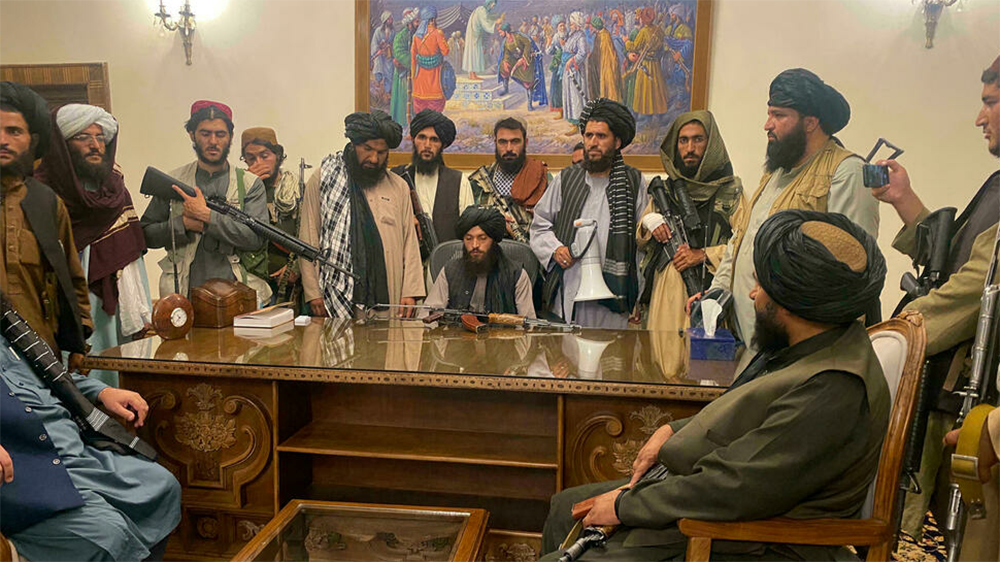 |
| Taliban soldiers at the Afghan presidential palace in Kabul. Photo: AP - Zabi Karimi |
“We can and should establish alternatives to support the Afghan people, rather than allowing these resources to be used to bolster the Taliban’s oppressive regime,” Republican senators Marco Rubio and Rob Portman wrote in a letter to Treasury Secretary Yellen.
These senators opposed the release of the reserves of the Central Bank of Afghanistan, and said that the US should "intervene" at the IMF to ensure that the $450 million in reserves in the Special Drawing Rights (SDR) remains frozen.
Adnan Mazarei, a senior fellow at Washington's Peterson Institute for International Economics and a former deputy director at the IMF, said it would be difficult for the Taliban to immediately access the Afghan government's reserves, as this does not happen automatically when there is a change of government.
“There needs to be international recognition and understanding of the economic policies and practices of any new government,” Mr. Mazarei said.
The controversy in the US became more intense after the Taliban announced a new cabinet with many hardliners, even those who are being punished for being on the global terrorist list. Notably, among them, the new interior minister is the one who is most wanted by the US.
The new cabinet also excludes women and representatives from other religious and ethnic minorities, a move that appears to contradict the Taliban’s pledge of an “inclusive” government after taking over Kabul in mid-August.
“The legitimacy and support for the Taliban remains controversial. Sanctions should be applied immediately to deny the Taliban access to financial resources. Anything that can be done to deny terrorists access to resources should be applied in this case,” said Richard Goldberg, senior adviser to the Foundation for Defense of Democracies, a hawkish Washington organization.
Different approaches between countries
Peterson Institute researcher Mazarei said that different countries will resume aid programs to Afghanistan in different ways because the legitimacy of the Taliban is still controversial among countries.
Russia has expressed opposition to freezing Afghan funds, warning that the economically squeezed Taliban will have to seek revenue from the drug trade.
Meanwhile, Pakistan – which is bearing the brunt of the refugee crisis and has taken in more than 3 million Afghan citizens – has proposed a Marshall Plan-style fund for Afghanistan.
 |
| Taliban leaders asked members of this force not to celebrate the victory. Illustration photo: AP |
“Europe is more at risk from the influx of refugees from Afghanistan than the United States. So they have an incentive to quickly restore aid to Afghanistan,” Mr. Mazarei said.
Regarding the new interim cabinet in Afghanistan, Mr. Mazarei said: “Unfortunately, they have established a very ‘Taliban-style’ government. It is not as inclusive as they claimed. I predict that they will not be able to quickly address the concerns of the international community, on security or on human rights.”

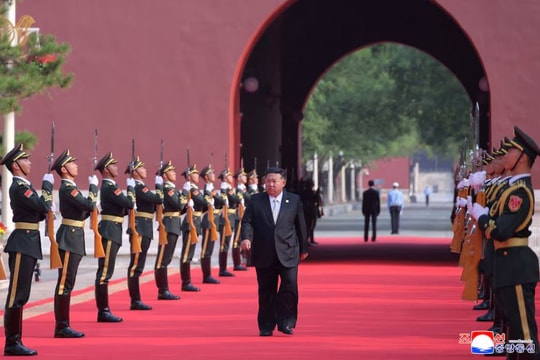
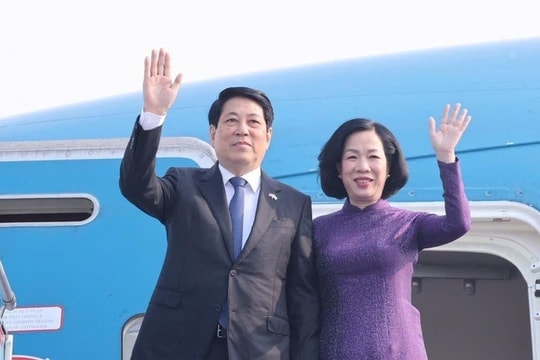
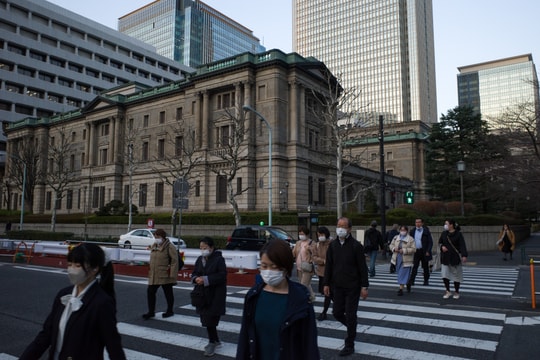
.jpg)
